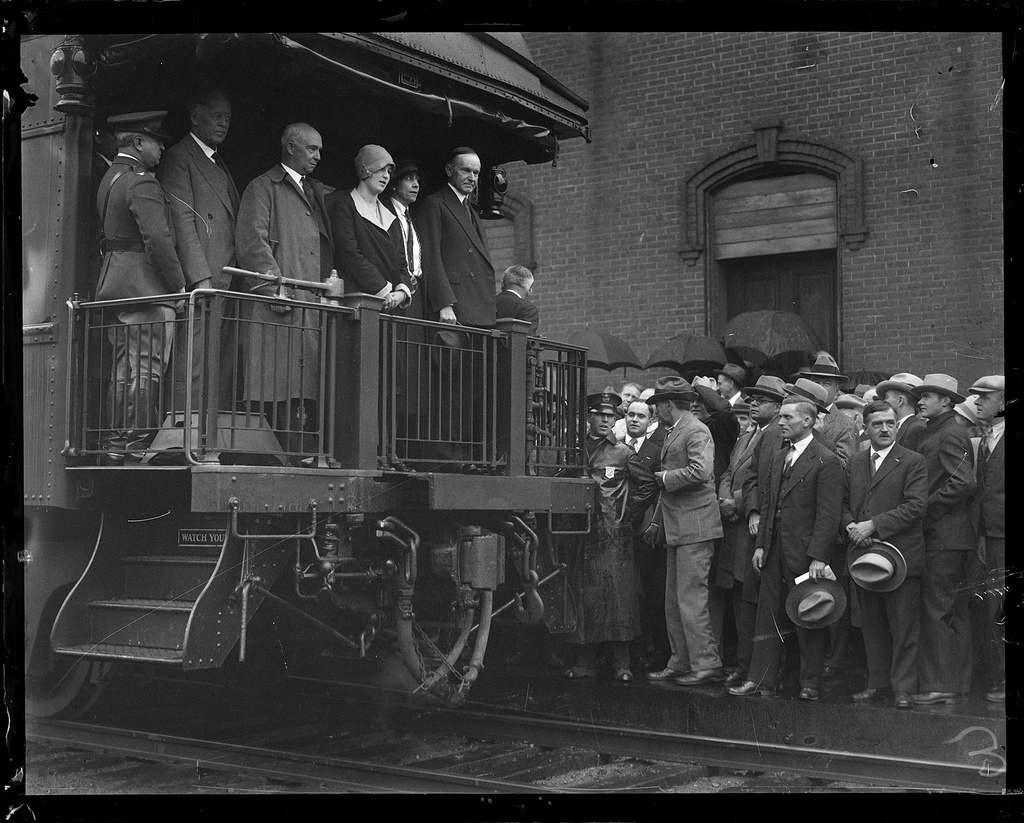A Calvin Coolidge Presidency, whose incredible victory in a three-way race on this very day in 1924, was never supposed to happen. He was supposed to be dumped from the enthusiasm for the 1920 ticket subsided after the tumult of 1922. Harding’s death brought him the Presidency but he proved himself so adept a winner and so capable an administrator that, in Coolidge style, one obstacle after another melted away and he emerged not only the strongest hope for victory but the only one equipped to pull off a landmark win against two other opponents. It was an occurrence, still overshadowed by the dread of 1912, that simply did not happen by accident. He knew how to win elections and he knew how to govern. That recipe is desperately needed in the new ’20s. If we would seek to win big and govern well, we better study how Cal did it. To do so, pick up a copy of Keeping Cool on the Campaign Trail. It opens eyes to what made him so genuinely popular and so incredibly successful. Washington certainly needs him back but so do our cities, counties, and state capitals. We need patriots like Frank Stearns to support candidates like him and we need men and women to be unafraid, put in the sweat equity, learn to win and govern well as he proved possible. As he said, either we are nation content to be ruled by a part of the people or we are resolved to get involved and govern ourselves:
To live up to the full measure of citizenship in this nation requires not only action, but it requires intelligent action. It is necessary to secure information and to acquire education. The background of our citizenship is the meeting house and the school house, the place of religious worship and the place of intellectual training. But we cannot abandon our education at the school house door. We have to keep it up through life. A political campaign can be justified only on the grounds that it enables the citizens to become informed as to what policies are best for themselves and for their country, in order that they may vote to elect those who from their past record and present professions they know will put such policies into effect. The purpose of a campaign is to send an intelligent and informed voter to the ballot box. All the speeches, all the literature, all the organization, all the effort, all the time and all the money, which are not finally registered on election day, are wasted.
We are always confronted with the question of whether we wish to be ruled by all the people or a part of the people, by the minority or the majority; whether we wish our elections to be dominated by those who have been misled, through the presentation of half truths, into the formation of hasty, illogical and unsound conclusions; or whether we wish those to determine the course of our Government who have through due deliberation and careful consideration of all the factors involved reached a sound and mature conclusion. We shall always have with us an element of discontent, an element inspired with more zeal than knowledge. They will always be active and energetic, and they seldom fail to vote on election day. But the people at large in this country are not represented by them. They are greatly in the minority. But their number is large enough to be a decisive factor in many elections, unless it is offset by the sober second thought of the people who have something at stake, whether it be earnings from in vestment or from employment, who are considering not only their own welfare, but the welfare of their children and of coming generations. Our institutions never contemplated that the conduct of this country, the direction of its affairs, the adoption of its policies, the maintenance of its principles, should be decided by a minority moved in part by self-interest and prejudice. They were framed on the theory that decisions would be made by the great body of voters inspired by patriotic motives. Faith in the people does not mean faith in a part of the people. It means faith in all the people. Our country is always safe when decisions are made by a majority of those who are entitled to vote. It is always in peril when decisions are made by a minority.
